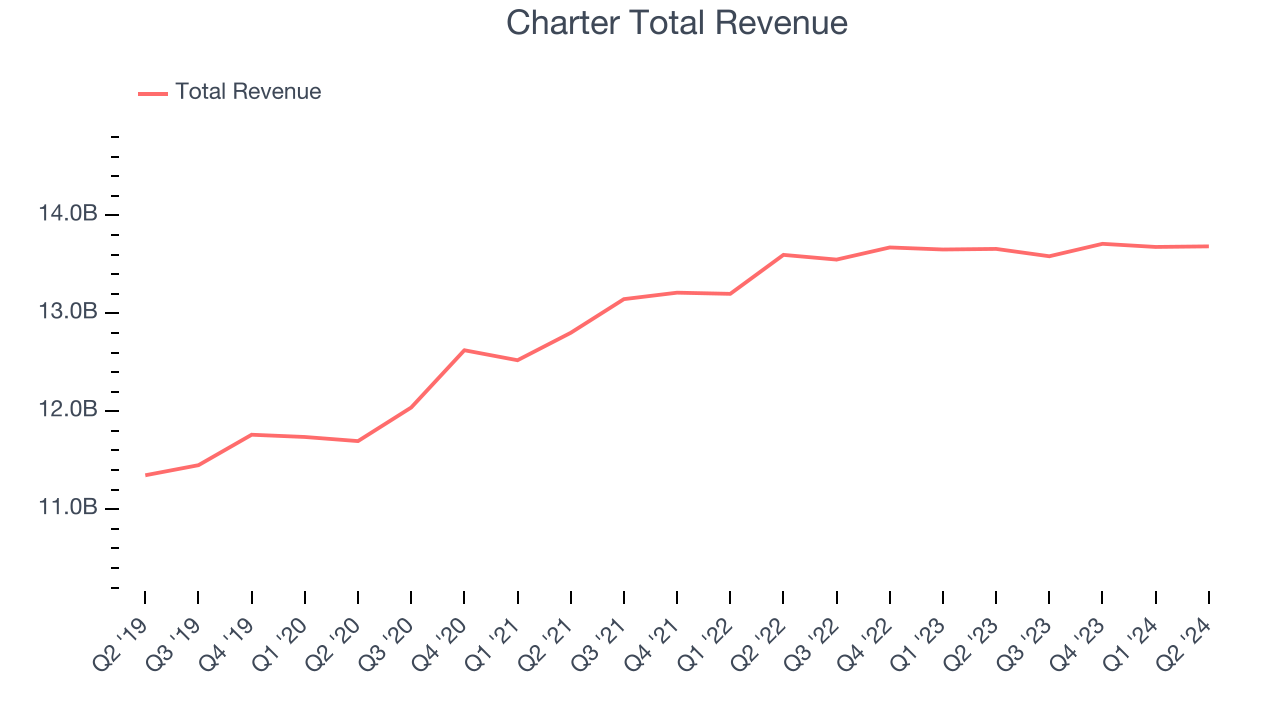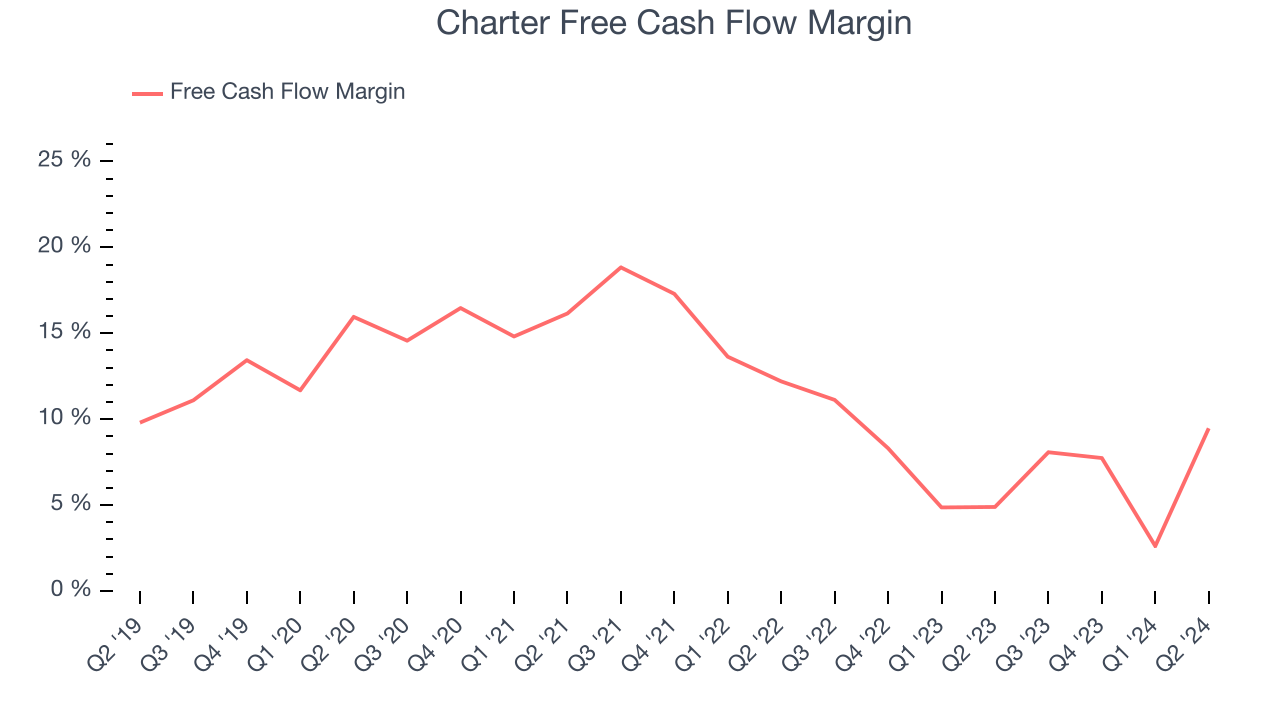Cable, internet, and telephone services provider Charter (NASDAQ:CHTR) reported results in line with analysts' expectations in Q2 CY2024, with revenue flat year on year at $13.69 billion. It made a GAAP profit of $8.49 per share, improving from its profit of $8.05 per share in the same quarter last year.
Is now the time to buy Charter? Find out by accessing our full research report, it's free.
Charter (CHTR) Q2 CY2024 Highlights:
- Revenue: $13.69 billion vs analyst estimates of $13.6 billion (small beat)
- EPS: $8.49 vs analyst estimates of $7.90 (7.5% beat)
- Gross Margin (GAAP): 40.3%, up from 39.2% in the same quarter last year
- Free Cash Flow of $1.30 billion, up from $358 million in the previous quarter
- Internet Subscribers: 28,318 at quarter end
- Market Capitalization: $45.4 billion
"We are executing well on several transformational initiatives, growing EBITDA through efficiencies, and improving our service and sales capabilities," said Chris Winfrey, President and CEO of Charter.
Operating as Spectrum, Charter (NASDAQ:CHTR) is a leading telecommunications company offering cable television, high-speed internet, and voice services across the United States.
Cable and Satellite
The massive physical footprints of fiber in the ground or satellites in space make it challenging for companies in this industry to adjust to shifting consumer habits. Over the last decade-plus, consumers have ‘cut the cord’ to their traditional cable subscriptions in favor of streaming options. While that is a headwind, this affinity to streaming means more households need high-speed internet, and companies that successfully serve customers can enjoy high retention rates and pricing power since the options for internet connectivity in any geography is usually limited.
Sales Growth
Reviewing a company's long-term performance can reveal insights into its business quality. Any business can have short-term success, but a top-tier one tends to sustain growth for years. Unfortunately, Charter's 4.1% annualized revenue growth over the last five years was weak. This shows it failed to expand in any major way and is a rough starting point for our analysis. 
We at StockStory place the most emphasis on long-term growth, but within consumer discretionary, a stretched historical view may miss a company riding a successful new product or emerging trend. Charter's recent history shows its demand slowed as its annualized revenue growth of 1.4% over the last two years is below its five-year trend.
This quarter, Charter's $13.69 billion of revenue was flat year on year and in line with Wall Street's estimates. Looking ahead, Wall Street expects revenue to remain flat over the next 12 months.
When a company has more cash than it knows what to do with, buying back its own shares can make a lot of sense–as long as the price is right. Luckily, we’ve found one, a low-priced stock that is gushing free cash flow AND buying back shares. Click here to claim your Special Free Report on a fallen angel growth story that is already recovering from a setback.
Cash Is King
If you've followed StockStory for a while, you know we emphasize free cash flow. Why, you ask? We believe that in the end, cash is king, and you can't use accounting profits to pay the bills.
Charter has shown weak cash profitability over the last two years, giving the company limited opportunities to return capital to shareholders. Its free cash flow margin averaged 7.1%, subpar for a consumer discretionary business. The divergence from its good operating margin stems from its capital-intensive business model, which requires Charter to make large cash investments in working capital and capital expenditures.

Charter's free cash flow clocked in at $1.30 billion in Q2, equivalent to a 9.5% margin. This quarter's result was good as its margin was 4.6 percentage points higher than in the same quarter last year, but we wouldn't read too much into the short term because investment needs can be seasonal, leading to temporary swings. Long-term trends trump fluctuations.
Over the next year, analysts predict Charter's cash conversion will fall. Their consensus estimates imply its free cash flow margin of 7% for the last 12 months will decrease to 3.5%.
Key Takeaways from Charter's Q2 Results
We were impressed by how Charter beat analysts' total internet customers and adjusted EBITDA expectations this quarter. Overall, we think this was a really good quarter that should please shareholders. The stock traded up 11.1% to $350 immediately following the results.
So should you invest in Charter right now? When making that decision, it's important to consider its valuation, business qualities, as well as what has happened in the latest quarter. We cover that in our actionable full research report which you can read here, it's free.
